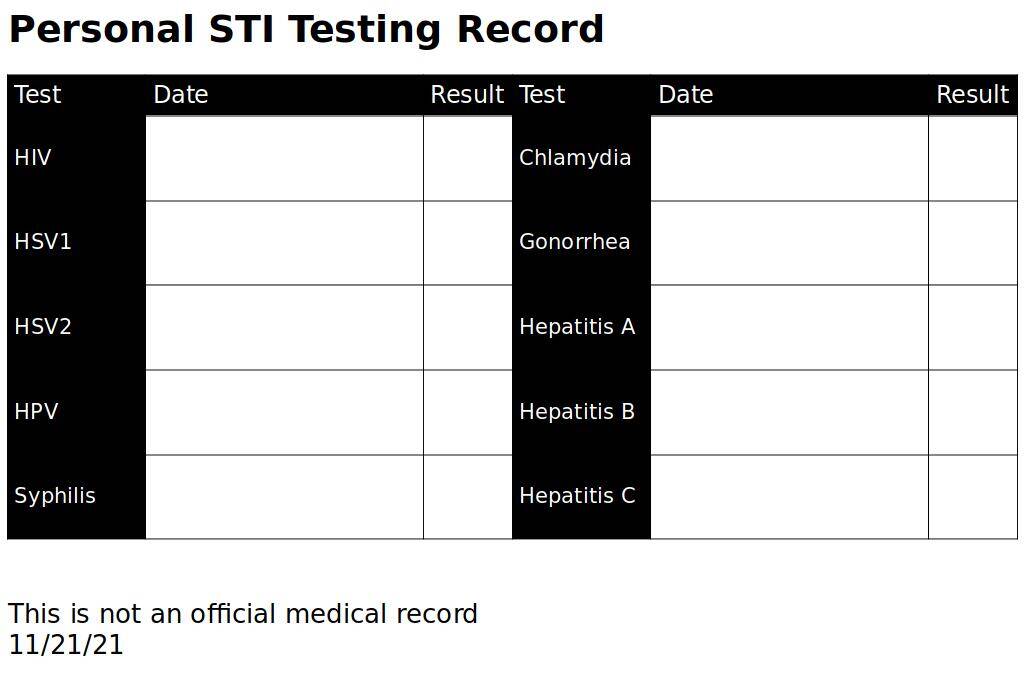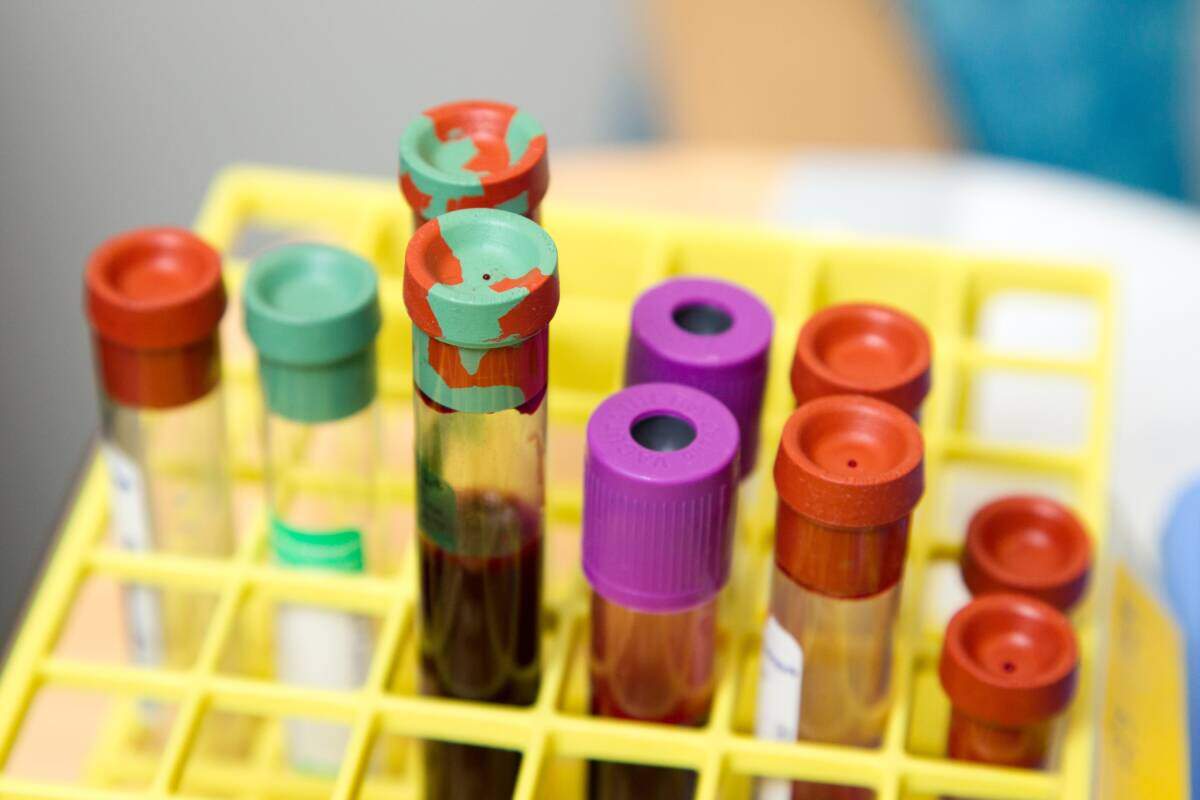I missed the call from my doctor’s office when I was in Target. I’ve known my doctor for decades now, and have to have some bloodwork regularly tested. His office would only call if the test results were out of whack.
I’d recently asked him – for the first time – to do a full screen for sexually transmitted infections.
I was more than a little nervous when I called his office back.
"Oh, yeah," the receptionist said. "We just got your labwork back and… oh. Oh. Let me get a nurse."
So I waited, standing next to my car in the Target parking lot for five agonizing minutes.
The nurse got right to the point. "Have you ever had a cold sore?"
I didn’t know what that had to do with anything. "As a kid, sure…"
"Yeah, that’s herpes simplex 1. Since you’ve had cold sores in the past, you tested positive. No big deal."
I tell that story as a good segue into "the talk" about STIs. Somewhere around 2/3 of the world’s population has been exposed to HSV1 – the "cold sore" variant of herpes. [1] Some people continue to have cold sores, some people (like me) haven’t had a sore in decades but still test positive. It is – to me, and a couple of billion people – really no big deal. Something that happened in childhood.
That is not a universal point of view. While it’s no big deal to me, it is a very big deal to others. It’s not just that one infection that has such a wide range of opinion, either. Someone with an HIV diagnosis who is properly treated, with an undetectable viral load, and whose partner(s) are on PReP has a pretty much nil chance of passing along that virus. At the same time, it’s not a stretch to think that would be a big issue for others.
Those individual decisions and boundaries are people’s rights; whatever your decision, it is valid. The point here is that people have very different ideas of what tests "count" for a STI screen. Does HSV1 "count"? What about HPV? And what type of HPV test?
And that’s if your doctor doesn’t push back – or flat out refuse – to do the testing in the first place. Some won’t do the tests for an infection unless you say you had a possible exposure or have symptoms [2]. So if a prospective partner requests a test, you might have results from different labs – or have an electronic medical record that is an absolute nightmare to navigate.
Both of those applied to me recently, and it was super frustrating to get that information. So I created a document template for me to keep track and easily update it so that I would know if I wanted to share that information.

Let me be clear: Different people approach this issue in different ways. Some people want to see the actual test results. Some people do not think it’s their place to request this kind of medical information. Others rely on latex, and only drill down if they’re planning to go barrier-free. That is your choice and boundary. I am not telling you that your choice is right or wrong – for you.
I made this for me. I want to have all this information in one place. I do not think we should have a stigma around STIs any moreso than we might have about type 2 diabetes. If a prospective partner asks me, I don’t want to fumble through multiple PDFs or apps. I do not mind sharing that information with a prospective partner if that would make them feel more comfortable. That’s my choice.
So that’s why I created this little tool as a template for LibreOffice and for Word. Both are in the zip file at https://saus.xyz/zjpyu, or https://drive.google.com/file/d/16gsOqv-zGGWew68Sweou9T00L5GTtno_/view?usp=sharing .
If you want to use it, download it, and modify it as you want. You want to remove the hepatitis bits? Go right ahead. You want to add on spots about vaccinations for other diseases? Knock yourself out.
The important thing is that you and your partner(s) have a clear conversation about STIs and what you expect.
And if this little template helps you toward that goal, then all the better.
Featured Photo by National Cancer Institute on Unsplash

[1] Calling it "oral" herpes is a bit of a misnomer; that variant strongly prefers the mouth and HSV2 strongly prefers the genitals, but it’s not 100%.
[2] Which is crap. Because some don’t show symptoms at all, or show them differently for people with different "bits". Add to it that 40%-60% (depending on who you ask) relationships have episodes of infidelity, you may not be aware that your partner has exposed you to something. Regular routine STI testing should be part of your regular healthcare routine.
